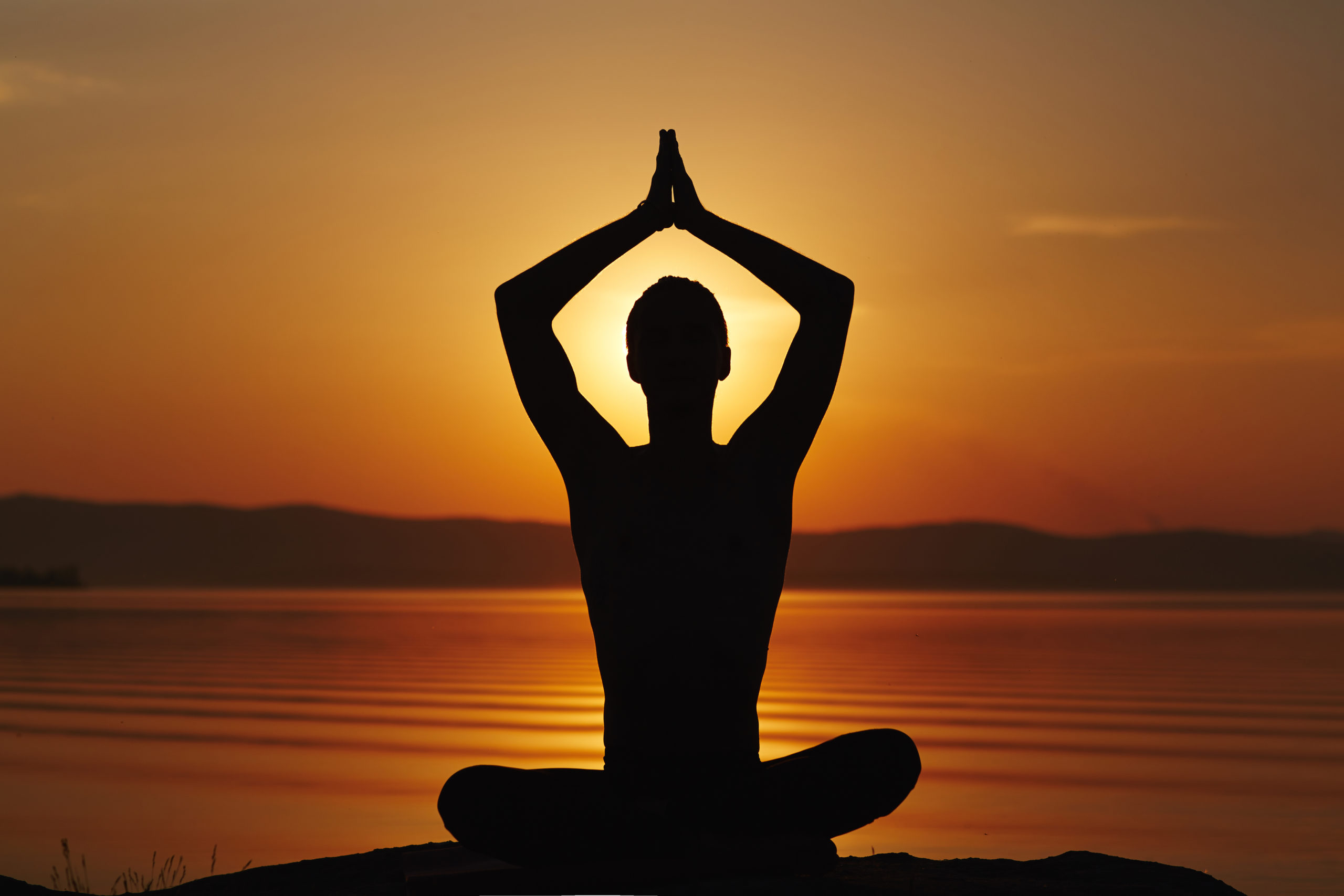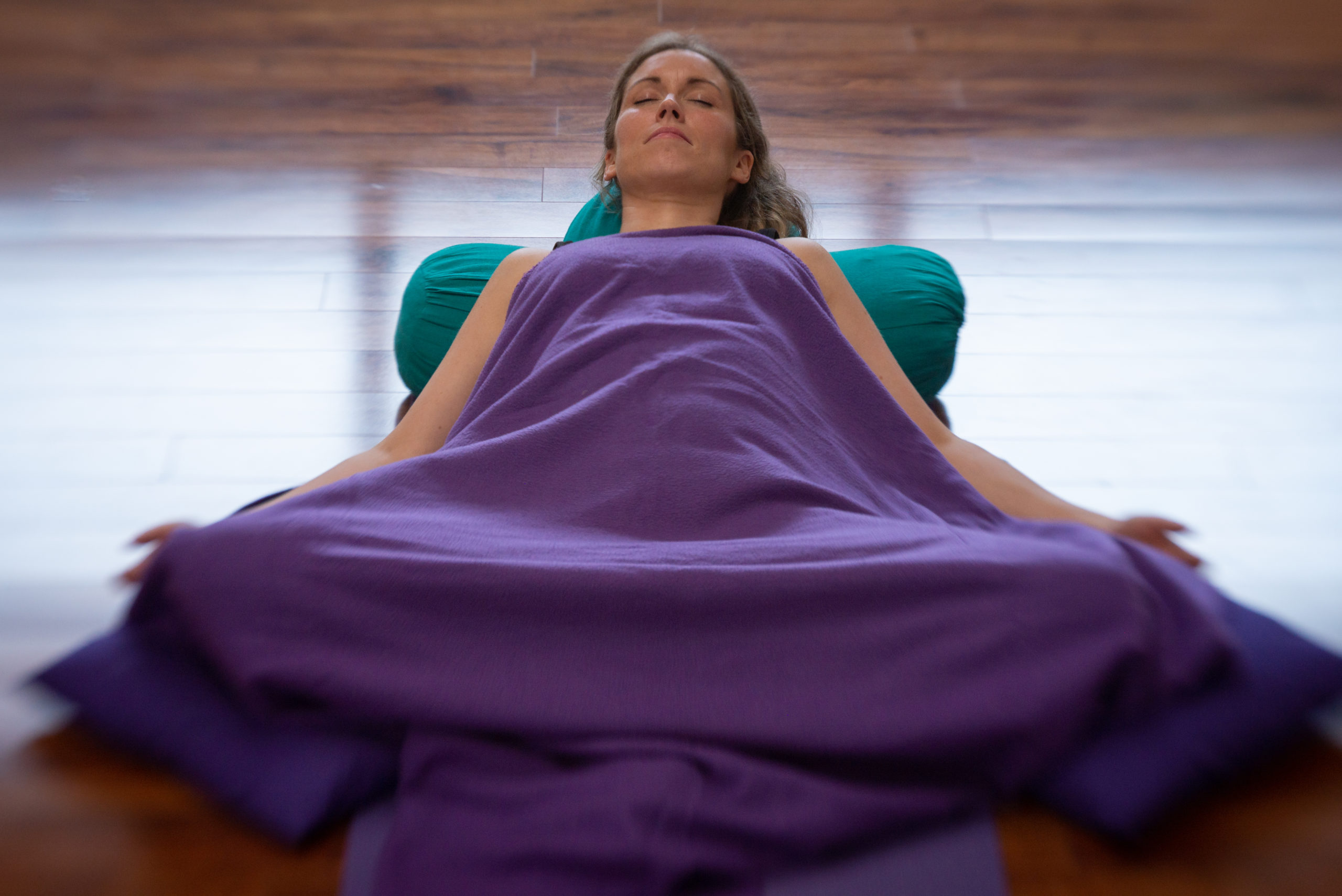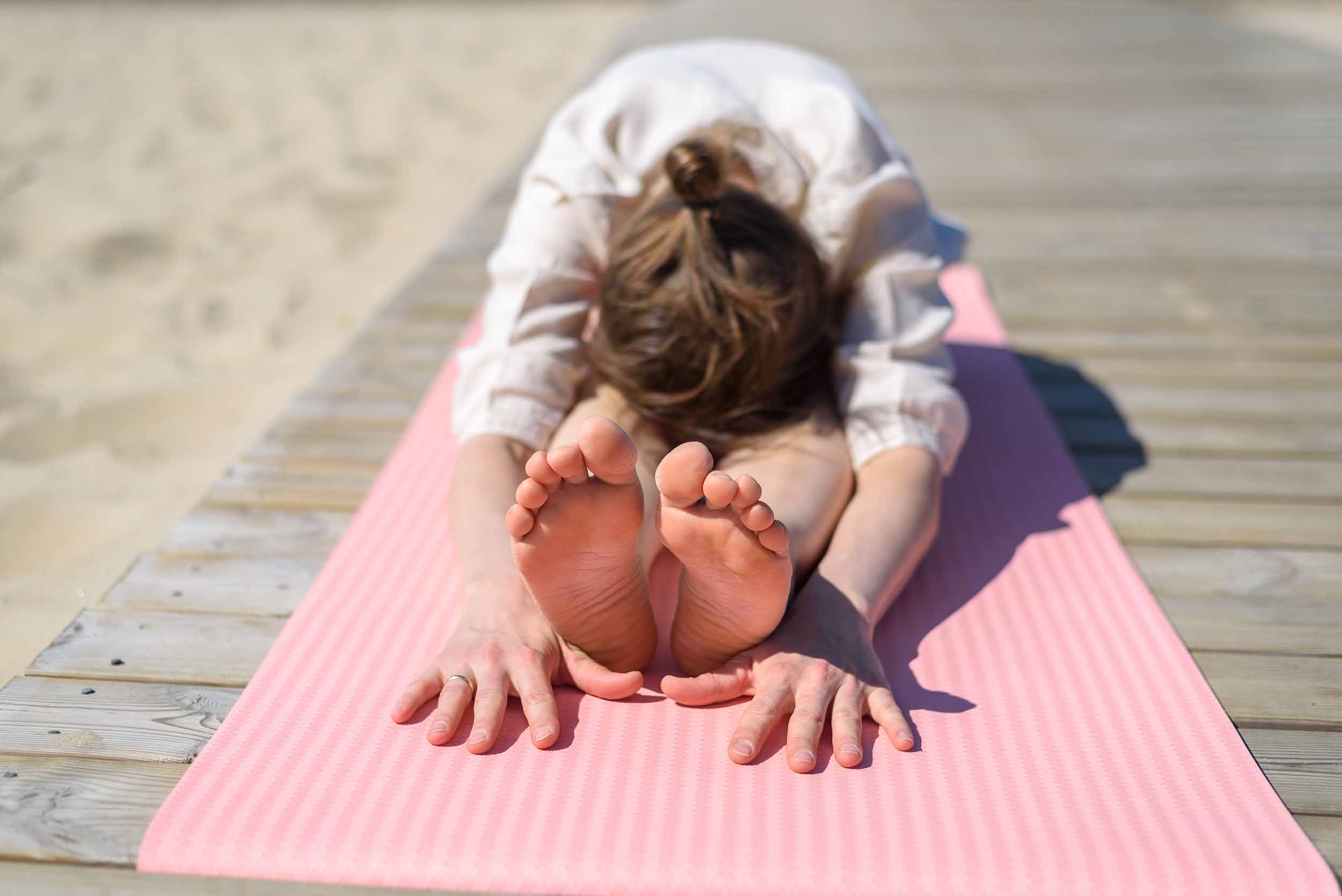5 Reasons Why You Should Try Yoga
| By Eveanna De Barra | 0 Comments



Monica
Ālaya Yoga
5 Reasons Why You Should Try Yoga
Here are 5 Reasons why everyone should try yoga
Yoga is often defined as a form of exercise in which you practice poses that help you relax your mind, become more flexible and improve your strength. Yoga, however, is so much more than just that. It’s a practice that perfectly combines breathwork, meditation and mindfulness to tackle everyday stresses as well as ease our minds of any anxiety we may feel on the regular. Through the practice of Asana and breathwork, yoga improves our mobility, flexibility and strength, targeting our mental, physical and spiritual well being.
Yoga practitioner is encouraged to keep their focus on their breath and to practice mindfulness to get the most out of each pose. The daily practice of yoga can help you feel more centred throughout your day, helping ease the stresses that we face regularly in today’s world where people have looming deadlines, rush hours and workloads. It can help you feel more balanced in your approach to life. Other than these benefits from the practice, yoga can also help hasten the healing time in medical ailments such as insomnia, depression, arthritis etc and has mental and physical health benefits for people of all age groups. Yoga can be modified for different people based on their level of fitness, age, and disabilities.
In this article, I’ll talk a little more about some of the most popular reasons people practice yoga.
A yoga practitioner is encouraged to keep the focus on their breath and to practice mindfulness to get the most out of each pose.
Yoga improves strength, mobility and flexibility
The most obvious benefits of making yoga a part of your daily practice and routine are the physical benefits to your body. Yoga helps increase blood circulation in our bodies through the practice of asana’s, many of which target specific locations in our body.
So many people today spend hours upon hours on a chair working, which can often lead to neck and back pain and can even cause irreversible changes to our posture and our spine. Something as simple as doing a sun salutation can help open up your chest, and stretch out your back and reverse the effects of sitting still for extended periods of time. Yoga also involves stretches that if done regularly can help us become more flexible and can improve our strength. One can even alter their daily practice based on what they want to target.
Yoga can help with insomnia
Yoga can help people who suffer from insomnia and poor or irregular sleep patterns. Studies have shown that people who practice yoga before bed find it easier to drift off to sleep as your physical body as well as your mind is more at ease. It can help prepare our mind and our body not only to fall asleep but to stay asleep. Meditation is also a great tool to use when you’re lying awake in bed. When you’re in a meditative state, your mind has the chance to revisit each problem and put it to rest, and this process of mentally putting an end to the day can help calm an overactive brain.

Studies have shown that people who practice yoga before bed find it easier to drift off to sleep...
Yoga can help manage and prevent anxiety
Our bodies are complex structures that hold emotions, thoughts and feelings in their alignment. Holding our bodies in particular positions can provoke thoughts and feelings associated with that pose, for example, people with an open chest and their shoulders back and down maybe habitually more receptive and open to the world around them, while people with a hunched back may suffer from issues of self-esteem.
Anxiety can manifest in our body in 2 physical ways, through our muscles and our breath, i.e., our body becomes stiff and tense while our breath quickens.
• Here are 8 breathing exercises for anxiety you can try right now.
By learning how to manage our breath through the practice of pranayama and being more informed about the alignment of our own bodies, we can manage anxiety more efficiently as well as avoid panic attacks before they even occur.
Studies have shown that people who practice yoga regularly have more energy throughout the day.
Health benefits of yoga
As a lifestyle choice, yoga has proven to help with multiple health issues and is recommended by medical professionals all over the world as a complementary health approach and a holistic health practice.
– Practising yoga can lower the risk of heart disease and is recommended as a preventative measure especially for patients who have suffered from cardiac arrest.
– Yoga can also help reduce chronic stress, anxiety, depression, and insomnia as well as chronic arthritis.
– It can help improve our overall brain health, especially brain functions such as attention and memory.
– Yoga is also great for improving your balance, which is all the more important for people who are older.
– It can help boost our immune system as well as help with thyroid issues such as hyperthyroidism as well as hypothyroidism.
– The practice of yoga can even help prevent diabetes.
– Pranayama is also great for the health of our lungs and can help us improve the quality of our breath.
These are just some of the many health benefits that yoga provides. With regular practice, yoga can help us lead healthier as well as more balanced lives.
Yoga can help improve our moods, temperament and stress levels
We face stressors in our daily lives, be it at home, work or even in social situations and stress can become a habit just like anything else. This constant low-stress mode we face throughout the day can impact how we think, how we act, and even our posture. They can gradually become the root cause of physical and mental illnesses, such as depression, anxiety and chronic pains.
Yoga can help boost our moods so we feel negative emotions less often. People who suffer from poor anger management and suffer short tempers can also benefit from yoga through the practice of pranayama and mindfulness and is often recommended by therapists.
Yoga is more than just a form of exercise, it is a lifestyle choice that can help improve our mental and physical health. The next time you’re feeling stiff, stressed out or just low, do a small yoga practise and see how it affects your mind and your body. Over on the Ālaya Yoga platform we’ve got loads of great express classes on our live schedule as well as in our video back so you can practice anytime.
Ready to give yoga a try?
At Ālaya Yoga, we’ve got a team of expert teachers who are all trained to teach to all levels, including complete beginners. Explore our memberships at Ālaya Yoga and start your journey to holistic wellbeing today.


